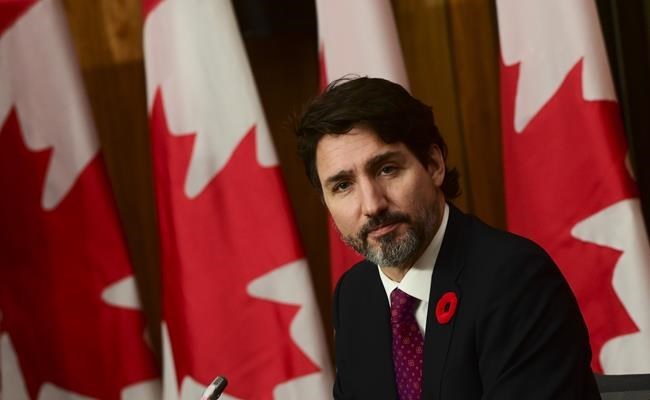Ottawa will immediately provide more than $61 million to help Indigenous communities in Manitoba fight the COVID-19 pandemic, a move that Indigenous Services Minister Marc Miller said was prompted by the province's alarming rise in cases.
"When we see the number of hospitalizations off reserve in places like Winnipeg, you see a disproportionate amount of Indigenous Peoples that are hospitalized," Miller said in an interview Tuesday.
The new money will support public health measures, food security and other surge capacity needs. Indigenous Services Canada is mobilizing people to do contact tracing and sending equipment to affected communities.
The funding will include $38 million for public health services, $3 million for personal care homes, $3.4 million for community infrastructure improvements and $17 million for Indigenous communities on reserve.
Miller said Indigenous chiefs in Manitoba asked the government recently for more financial support to bolster their COVID-19 pandemic plans.
"I am a representative and minister of the federal government and the trust that Indigenous communities have towards us is very thin, sometimes, deservedly so," he said.
Miller said there is a large number of vulnerable Indigenous people living off reserve and they have been historically underserved. Indigenous Services Canada doesn't provide primary nursing or medical services in city centres because these services fall under provincial jurisdiction.
"We know the limits and how Indigenous Peoples have been underserved by the health-care system that's supposed to be giving them first first-class service," he said. "This isn't new. But it is something that we have to deal with, I think, the lessons learned."
According to Indigenous Services Canada, there were 771 active cases on reserves in the country on Monday.
There are 492 in Manitoba alone.
The Manitoba First Nations COVID-19 co-ordination team said Monday that 50 First Nations people living in the province have tested positive for the novel coronavirus in the previous 24 hours, including 20 people living on reserve.
The team, which co-ordinates the efforts of several Indigenous groups to fight the pandemic, said the new cases bring the total number of active COVID-19 cases among First Nations people to 963.
Assembly of Manitoba Chiefs Grand Chief Arlen Dumas said Indigenous leaders were quick to declare an emergency in March. Many were under lockdown for months and there were very few infections on reserves.
Dumas said conversations were ongoing with Ottawa throughout the summer about more resources, despite the low numbers, because First Nations leaders were worried about a second wave.
“It's a life and death matter. These resources need to be here now,” Dumas said. “They should have been here a month ago."
Miller said his department will be partnering with the Manitoba First Nations pandemic response team to identify where the government should invest its resources.
Manitoba currently leads all other regions in per-capita active cases. The five-day test positivity rate on reserve in Manitoba is 15 per cent, while it’s 10 per cent provincially.
Dumas said despite the drastic rise in cases among First Nations in recent weeks, Indigenous leaders were still receiving push back from the federal government with the groups arguing over how resources should be used.
Dumas said it changed following a meeting last week with federal and provincial officials, as well as the provincial chief public health officer.
"Our partners, wherever they are, are having just inane conversations amongst themselves and unfortunately to the consequence of people getting COVID and unfortunately people dying from COVID," Dumas said.
"Then everybody wants to scramble and finally they start listening to the leaders again."
Miller said he won't be satisfied until things are fixed.
"That's just my mindset. I think it should be the mindset of this government that we shouldn't be satisfied until Indigenous Peoples are treated equally," he said.
Miller said the COVID-19 pandemic has shown that Canada can mobilize resources to make sure that Indigenous people are properly served, but the underlying socio-economic conditions for that population in Canada are unacceptable.
"That is the reality that we must face coming out of it, so that we can, in fact, build back better and serve Indigenous Peoples as we want to be treated ourselves," he said.
The news comes as COVID-19 cases in Manitoba keep rising, prompting Premier Brian Pallister to announce more restrictions are on the way, including closing restaurants and forbidding people from gathering socially with people from outside their household.
On Tuesday, Manitoba health officials reported 383 new cases of COVID-19 and five more deaths from the illness.
— With files from Kelly Geraldine Malone.
This report by The Canadian Press was first published Nov 10, 2020.
———
This story was produced with the financial assistance of the Facebook and Canadian Press News Fellowship.
Maan Alhmidi, The Canadian Press

